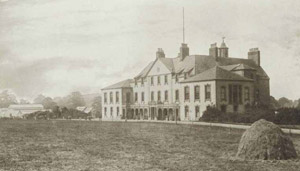WordPress database error: [Got error 28 from storage engine]
SELECT t.*, tt.*, tr.object_id FROM wp_terms AS t INNER JOIN wp_term_taxonomy AS tt ON tt.term_id = t.term_id INNER JOIN wp_term_relationships AS tr ON tr.term_taxonomy_id = tt.term_taxonomy_id WHERE tt.taxonomy IN ('category', 'post_tag', 'post_format') AND tr.object_id IN (19718) ORDER BY t.name ASC
Clan Halkett History
It is believed that the name Halkett derived from the lands of Halkhead in Renfrewshire, however the Ross’ have long been in record of owning the property.
Sometimes -et is used as a suffix meaning -wood, meaning that the name could infact originate from a place called Hawkwood near Stathaven in Lanarkshire.
There are a number of variations of the name Halkett. These include Halket, Halkit, Halkhet, Halkette, Haket, Hacet, Hacat, Hakkett, Holkat, Halkhead, Halkhaide, Halkheid, and Halkheide.
Noted people with this surname, or a variation, include Sir Henry Hakette who witnessed a charter by Henry de Graham in or around 1230.
A Richard Haket was on inquisition at Dumfries in 1259, whilst a Sir Walter Haket served Robert de Brus, Earl of Carrick, in 1298.
Thomas Haket was burgess of Are (Ayr) between 1415 and 1427.
The Halketts of Pitfirrane, Fife, are said to have been living there since the reign of David II (1329-1371). It was from David that these Halketts acquired the lands of Lumphanans and Ballingall.
It is recorded that a contract was made in 1437 between a “Daui hacet of lunfennen” and the abbot of Dunfermline.
A Robert Hacat owned land in Stirling in 1463, and a William Hakkett of Petfurane had a remission of time for slaughter committed by him in 1499.
There was a John Halket who was chosen as kirkmaster of Dysart, Fife in 1537, whilst in 1641 Archibald Halkhead was an elder in Dysart, and Robert Holkat was a prior in Culross, Fife in 1569.
George Halket, who died in 1737, was the author of the ballad “Logie of Buchan”.
Clan Halkett Posts







